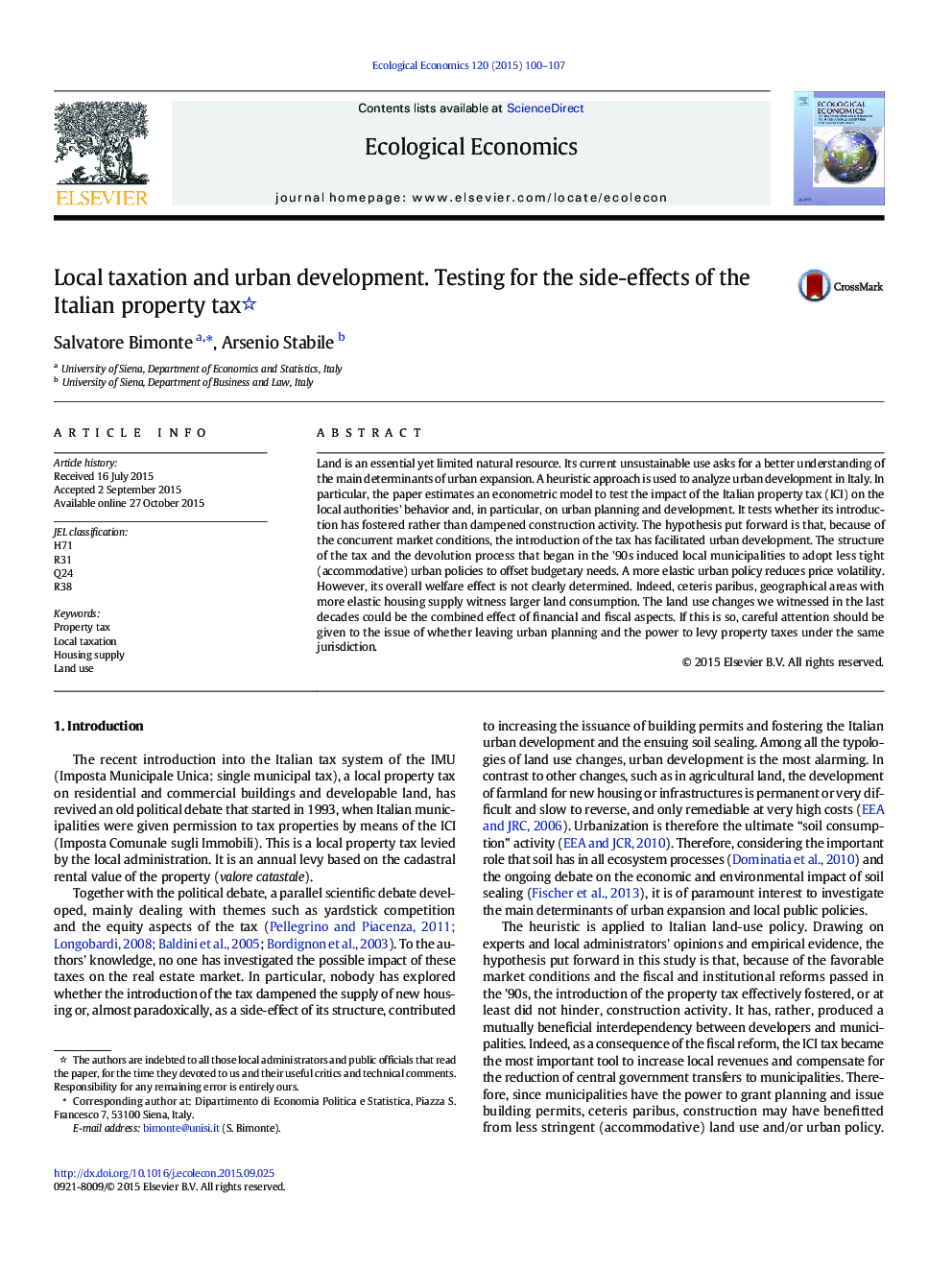| Article ID | Journal | Published Year | Pages | File Type |
|---|---|---|---|---|
| 5049191 | Ecological Economics | 2015 | 8 Pages |
â¢We analyze the main determinants of new housing supply.â¢We test for the effects of the Italian property tax on the urban development.â¢The hypothesis is that the property tax has not hindered/dampened urban development.â¢Municipalities use urban planning as a way of dealing with budgetary constraints.â¢As a side effect, fiscal and financial aspects impinge on land use change.
Land is an essential yet limited natural resource. Its current unsustainable use asks for a better understanding of the main determinants of urban expansion. A heuristic approach is used to analyze urban development in Italy. In particular, the paper estimates an econometric model to test the impact of the Italian property tax (ICI) on the local authorities' behavior and, in particular, on urban planning and development. It tests whether its introduction has fostered rather than dampened construction activity. The hypothesis put forward is that, because of the concurrent market conditions, the introduction of the tax has facilitated urban development. The structure of the tax and the devolution process that began in the '90s induced local municipalities to adopt less tight (accommodative) urban policies to offset budgetary needs. A more elastic urban policy reduces price volatility. However, its overall welfare effect is not clearly determined. Indeed, ceteris paribus, geographical areas with more elastic housing supply witness larger land consumption. The land use changes we witnessed in the last decades could be the combined effect of financial and fiscal aspects. If this is so, careful attention should be given to the issue of whether leaving urban planning and the power to levy property taxes under the same jurisdiction.
